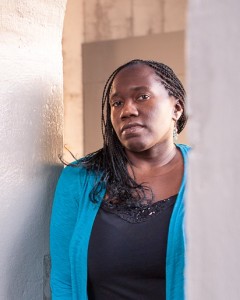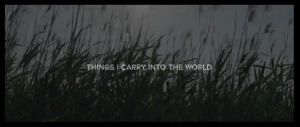FPP spoke with Cynthia Manick via email about her new self-portrait poems, being buried in the Schomburg stacks, Beyonce‘s dance to “Everybody Mad” and much more! Come to Silvana on Monday, April 30th, and hear Manick read with Dennis Norris II, Jennifer Baker, and Sarah Perry. Silvana is located at 300 W. 116th St., near Frederick Douglass Blvd, on the SW corner. Take the B/C to 116th and you’re there. 6-8pm. There will be cake!
 Tell us about your current work. A recent teacher asked what is the other voice of your silence? How do you disassemble fear? The poems I’m writing now deals with the body, home, and silence in different spaces. It explores the parts of our self we share readily, and those we don’t share at all. I’m currently writing a suite of self-portrait poems because as a black person, woman, sister, friend, daughter, girlfriend, poet, and more, I exist on different registers. I’m also working on disassembling fear by exploring joy. Poetry doesn’t have to be steeped in pain, there’s joy to celebrate as well. That joy could be poems about Marvel’s Luke Cage or by exploring the intimacy of a kiss.
Tell us about your current work. A recent teacher asked what is the other voice of your silence? How do you disassemble fear? The poems I’m writing now deals with the body, home, and silence in different spaces. It explores the parts of our self we share readily, and those we don’t share at all. I’m currently writing a suite of self-portrait poems because as a black person, woman, sister, friend, daughter, girlfriend, poet, and more, I exist on different registers. I’m also working on disassembling fear by exploring joy. Poetry doesn’t have to be steeped in pain, there’s joy to celebrate as well. That joy could be poems about Marvel’s Luke Cage or by exploring the intimacy of a kiss.
You founded and curate your own reading series Soul Sisters Revue. What do you find most rewarding about having your own series? Soul Sister Revue was founded to honor the tradition of storytelling. I also wanted to create a space for people of color and for established and emerging poets to read in a shared space. The most rewarding part is the night of the performance and hearing a culmination of voices. I know that I’ve curated well, if I see everyone active listening and ignoring their phones. But lately people have been doing Instagram stories of the readings, so that’s also a good feeling. I like that they want to take the Soul Sister experience with them. It’s also rewarding to connect to the readers themselves. Sometimes I’ll read work in a literary magazine and I’m so moved that I’ll email that person directly (if they’re local) and invite them to be a part of the series.
Tell us about your Harlem. When I think of Harlem I first picture the Schomburg and its pictures of the Harlem Renaissance. In college I double majored in English and Philosophy and my English thesis focused on literature of the Harlem Renaissance. So I spent a couple of months buried in the Schomburg stacks and requesting pictures of the Savoy, Cotton Club, and the rare texts they inspired. Harlem has such a proud history as a Black Mecca and when I travel there today, I see pockets of that pride. Harlem also makes me think of basketball courts on 125th and guys giving the game their all; hair salons with really good braiders if you’re willing to travel; and performers rubbing the tree on stage at the Apollo.
If you could share one poem of yours with all of America, what would it be? I’m going to cheat because there’s a tie between two poems. The short poem “Middle Passage” speaks to America’s past built on slavery, so the epigraph reads “for the ancestors of little black girls” because we can’t go forward without recognizing the past; its good and bad. I actually read that poem when I perform in a new space. The second poem is “Things I Will Tell My Children About Destiny” because it looks towards the future and what’s possible.
 What should we be reading, viewing, or listening to right now? Beside Beyonce‘s dance to “Everybody Mad” at Coachella (which is my current obsession), I’ve actually started to rewatch “Things I Carry Into The World” which is 3 minute film based on my poem that is on TIDAL in celebration of National Poetry Month. I hadn’t seen it in a while, so I’m rediscovering it all over again. I’ve been listening to the Gettin Grown podcast, where two black women talk about the honest difficulties in adulting; the Commonplace Podcast which is conversations with poets; and to Thirst Aid Kit, a hilarious podcast about thirsting outloud over stars like Oscar Issac and Mahershala Ali. I also recommend Women of Resistance: Poems for New Feminism edited by Danielle Barnhart, Another Way To Say Enter by Amanda Johnston, and Don’t Call Us Dead by Danez Smith. On my to-read list is black/Maybe by Roberto Carlos Garcia and Blood Vinyls by Yolanda J. Franklin.
What should we be reading, viewing, or listening to right now? Beside Beyonce‘s dance to “Everybody Mad” at Coachella (which is my current obsession), I’ve actually started to rewatch “Things I Carry Into The World” which is 3 minute film based on my poem that is on TIDAL in celebration of National Poetry Month. I hadn’t seen it in a while, so I’m rediscovering it all over again. I’ve been listening to the Gettin Grown podcast, where two black women talk about the honest difficulties in adulting; the Commonplace Podcast which is conversations with poets; and to Thirst Aid Kit, a hilarious podcast about thirsting outloud over stars like Oscar Issac and Mahershala Ali. I also recommend Women of Resistance: Poems for New Feminism edited by Danielle Barnhart, Another Way To Say Enter by Amanda Johnston, and Don’t Call Us Dead by Danez Smith. On my to-read list is black/Maybe by Roberto Carlos Garcia and Blood Vinyls by Yolanda J. Franklin.
